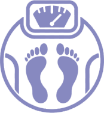The Ultimate Guide to Achieving Optimal Health Through a Nutrient-Rich Diet
When it comes to achieving optimal health, one of the most important factors to consider is the quality of your diet. A nutrient-rich diet plays a crucial role in supporting overall health and well-being. In this comprehensive guide, we will explore the key components of a nutrient-rich diet, how it can benefit your health, and provide practical tips on how to incorporate these principles into your daily life.
What is a Nutrient-Rich Diet?
A nutrient-rich diet is one that provides your body with all the essential nutrients it needs to function optimally. This includes vitamins, minerals, antioxidants, fiber, and other important compounds that are essential for good health. By focusing on consuming a wide variety of nutrient-dense foods, you can ensure that your body receives the necessary nutrients to support your overall health.
The Benefits of a Nutrient-Rich Diet
There are numerous benefits to following a nutrient-rich diet. Some of the key advantages include:
- Improved energy levels
- Enhanced immune function
- Better digestion
- Weight management
- Reduced risk of chronic diseases
Key Components of a Nutrient-Rich Diet
When it comes to building a nutrient-rich diet, there are several key components to consider:
1. Fruits and Vegetables
Fruits and vegetables are rich in vitamins, minerals, antioxidants, and fiber. Aim to include a variety of colors in your diet to ensure you are getting a wide range of nutrients.
2. Whole Grains
Whole grains are an excellent source of fiber, vitamins, and minerals. Opt for whole grain options such as brown rice, quinoa, and whole wheat bread to maximize nutritional benefits.
3. Lean Proteins
Protein is essential for building and repairing tissues in the body. Choose lean protein sources such as chicken, fish, beans, and tofu to support muscle growth and repair.
4. Healthy Fats
Healthy fats, such as those found in avocados, nuts, and olive oil, are essential for brain health and hormone production. Incorporate these fats into your diet in moderation for optimal health.
Tips for Incorporating a Nutrient-Rich Diet Into Your Lifestyle
Here are some practical tips to help you incorporate a nutrient-rich diet into your daily life:
1. Plan Ahead
Take the time to plan your meals and snacks ahead of time to ensure you have nutrient-rich options available throughout the day.
2. Shop Smart
Fill your pantry and refrigerator with nutrient-dense foods such as fruits, vegetables, whole grains, and lean proteins to make healthy choices easier.
3. Cook at Home
Cooking meals at home allows you to control the ingredients and ensure you are getting a balanced, nutrient-rich meal.
4. Stay Hydrated
Drink plenty of water throughout the day to support digestion and overall health.
5. Listen to Your Body
Paying attention to how different foods make you feel can help you identify which foods support your health and which may cause negative effects.
Common Questions About Nutrient-Rich Diets
1. Can I Get Enough Nutrients on a Plant-Based Diet?
Yes, it is possible to get all the necessary nutrients on a plant-based diet by including a variety of fruits, vegetables, whole grains, and plant-based proteins in your meals.
2. How Can I Ensure I am Getting Enough Protein on a Nutrient-Rich Diet?
There are many plant-based sources of protein, such as beans, lentils, tofu, and quinoa, that can help you meet your protein needs on a nutrient-rich diet.
3. Are Supplements Necessary on a Nutrient-Rich Diet?
In general, it is best to get your nutrients from whole foods. However, some individuals may benefit from supplements to fill any nutrient gaps in their diet.
4. How Can I Avoid Overeating on a Nutrient-Rich Diet?
Focus on eating mindfully, listening to your body’s hunger cues, and choosing nutrient-dense foods that will keep you satisfied for longer periods of time.
Conclusion
By following a nutrient-rich diet that includes a variety of fruits, vegetables, whole grains, lean proteins, and healthy fats, you can support your overall health and well-being. Incorporating these principles into your daily life through planning, smart shopping, cooking at home, staying hydrated, and listening to your body can help you achieve optimal health and vitality.
Remember, achieving optimal health is a journey that requires consistency and dedication. By making small changes to your diet and lifestyle, you can gradually improve your health and well-being over time. Start today by incorporating more nutrient-rich foods into your meals and experience the benefits of a healthier, happier you.












































